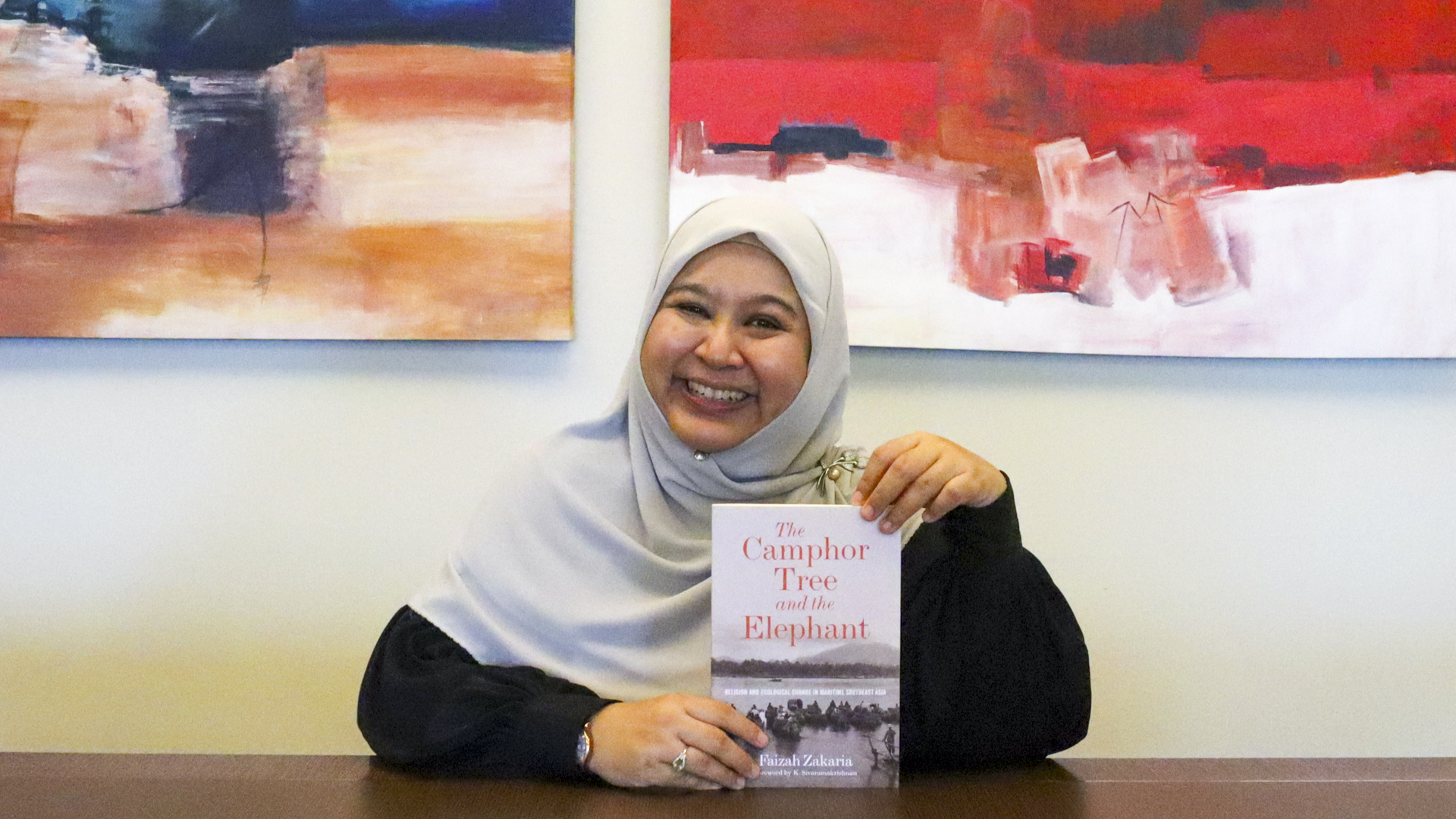Book on religion and the environment by Dr Faizah Zakaria accorded prestigious Association for Asian Studies award
April 11, 2025

The esteemed Harry J. Benda Prize was awarded to Dr Faizah Zakaria for her book “The Camphor Tree and the Elephant: Religion and Ecological Change in Maritime Southeast Asia”.
A book titled “The Camphor Tree and the Elephant: Religion and Ecological Change in Maritime Southeast Asia” by historian Dr Faizah Zakaria has claimed the prestigious annual “Harry J. Benda Prize (First book on Southeast Asian Studies)” by the Southeast Asia Council of the Association for Asian Studies. Established in 1977, the Prize honours books that make exceptional contributions to the understanding of Southeast Asia, specifically to authors publishing their first major work on the topic. One of the most esteemed awards in the field, receiving this prize is considered a major milestone for early-career scholars.
Published in February 2023 by University of Washington Press, Dr Zakaria’s book explores how religious beliefs and practices have influenced the way people in the region interact with their environment, specifically with respect to the natural world. She traces the conversion of the Batak people in upland Sumatra and the Malay Peninsula to Islam and Christianity during the 19th century, and finds that the process helped shape social structures that voided the natural world of enchantment, ushered in a cash economy, and placed the power to remake local landscapes into the hands of elites.
Dr Zakaria shared how she felt honoured to receive the distinction in the company of many wonderful scholars whose field-shaping books in Southeast Asian studies have been recognised through this award.
She added, “More importantly, I hope that my book will spark new conversations about environmental history and ethics as well as the role of religious communities in co-creating a sustainable world. Area studies, with its phenomenological approaches to understanding the region's communities, continues to offer grounded views to the pressing issues of our time and I hope that more students will be interested to explore the region on their own terms."
Dr Zakaria holds a joint appointment in the Departments of Southeast Asian Studies and Malay Studies at the NUS Faculty of Arts and Social Sciences. Her research interests focus on religion and ecology, environmental justice and indigenous movements in Southeast Asia. She is currently working on a research project on the role of religion and science in disaster responses, focusing on volcanic eruptions, and she also co-coordinates a digital humanities project comparing Malay and Chinese heritage medicine.

